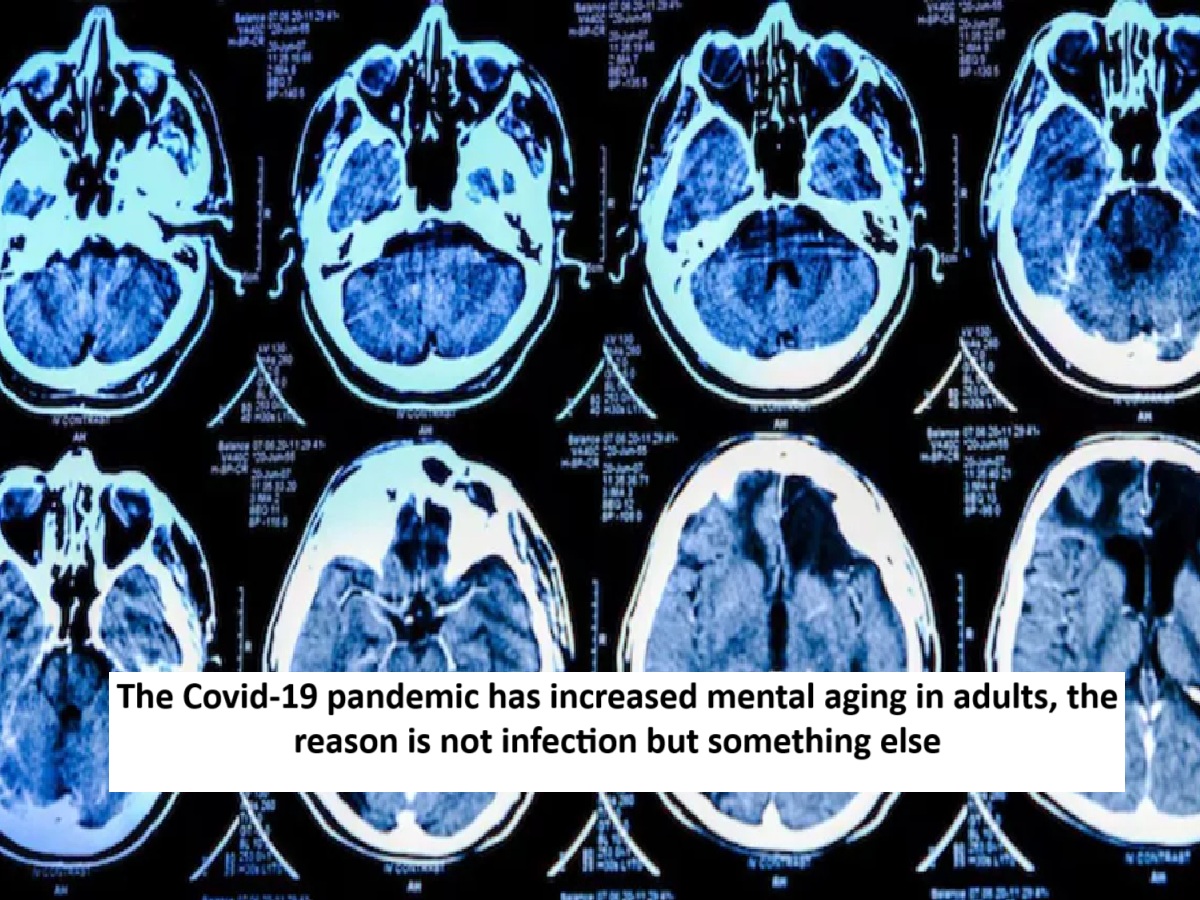
News Topical, Digital Desk : According to a new study, experiencing the COVID-19 pandemic accelerated brain aging by about five and a half months compared to pre- and post-pandemic conditions, regardless of one's infection status. Researchers said the study points to indirect effects of aspects such as isolation and uncertainty.
What does the study say?
The study, led by researchers at the University of Nottingham, analysed brain scans of adults in the UK, taken before and after the pandemic. They found the changes were most pronounced in the brains of older people, men and people from disadvantaged backgrounds, such as the unemployed and those with lower incomes or education.
However, brain aging does affect cognitive functioning, with brain fog and difficulty concentrating being common symptoms, but this was only found in people who were infected with COVID-19.
Suggesting that brain aging alone may not cause the symptoms. Lead researcher Ali Reza Mohammadi Nejad said this study shows how much the experience of the pandemic, from isolation to uncertainty, has affected our brain health.
Mohammadi Nejad further said, "What was most surprising was that even those who did not have COVID showed an increased rate of brain aging. Pandemic-related brain aging may be partly reversible, but it is strongly linked to socio-economic deprivation, so policies addressing inequalities are urgently needed as existing gaps were exacerbated during this time."
Use of AI-driven models
The AI-powered model used to predict brain age was first trained on magnetic resonance image (MRI) brain scans of over 15,000 healthy people from the UK Biobank.
The models learned to measure 'brain age difference', i.e. how much someone's brain age differs from their actual age. These models were then used to analyse two brain scans of 996 healthy participants.
Of these, 564 people (controls) had two scans taken before the pandemic, while 432 individuals in the 'pandemic' group had one scan taken before and one after.
After the epidemic, many types of pressures increased on people's lives
In addition, cognitive tests taken at the time of both scans showed that accelerated brain aging was associated with lower cognitive performance only in participants infected with COVID. Senior author Dorothy Ayer, professor of neuroimaging at the University of Nottingham, said, “This study reminds us that brain health is shaped not just by disease but also by the daily environment.”
Ayer said the pandemic has added pressure on people's lives, particularly those who were already disadvantaged. We can't test whether the changes we've seen will reverse, but it's certainly possible and it's an encouraging thought.
--Advertisement--

 Share
Share



